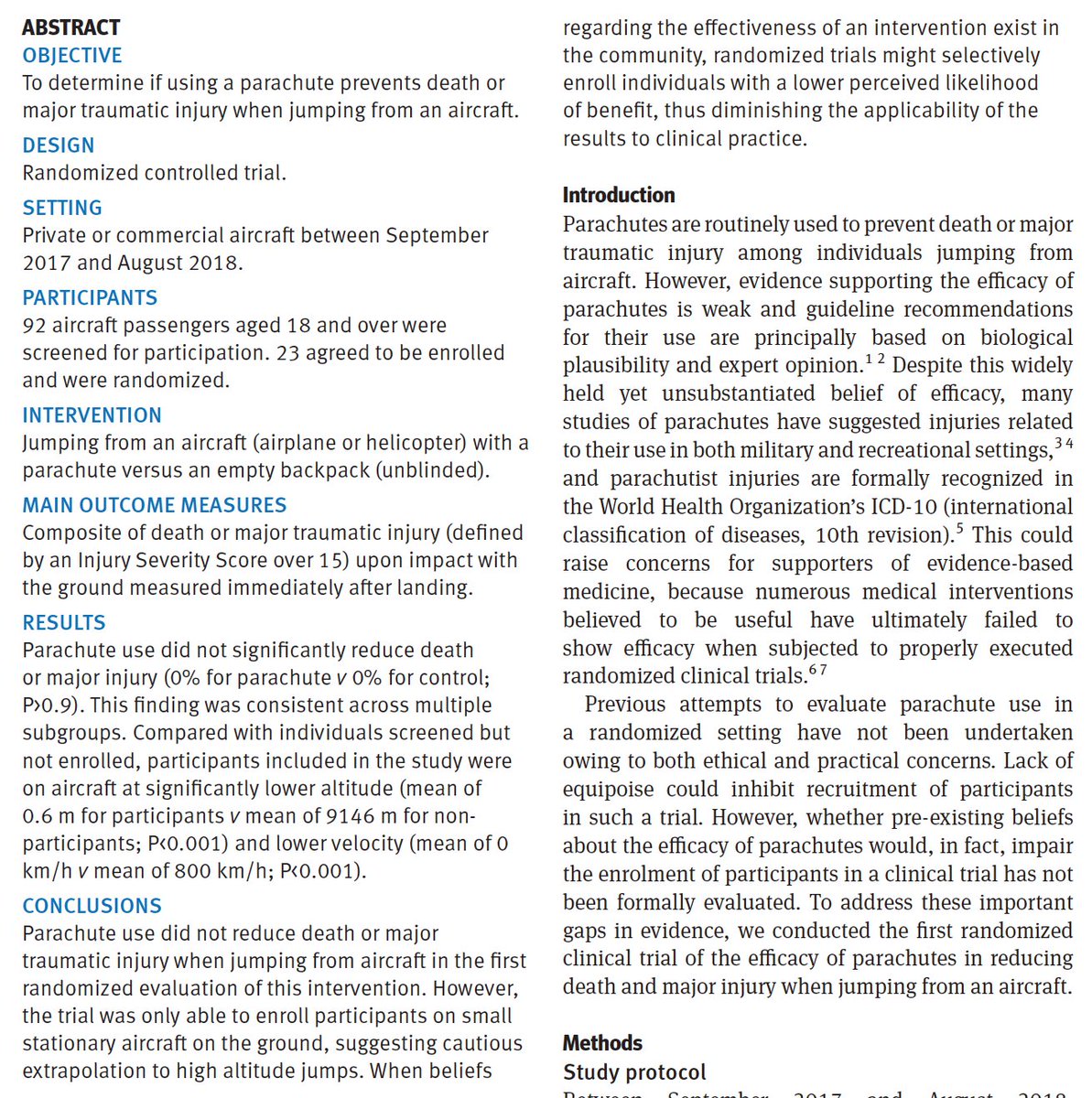Is it too much to hope that the BMJ might realise that this could have been tailor made as a parody of PACE? (probably)
(Some of the quotes have to be read on the assumption that its is pacing that was proved to be of no value.)
'Beliefs about the efficacy of commonly used, but untested, interventions often influence daily clinical decision making. These beliefs can expose patients to unnecessary risk without clear benefit and increase healthcare costs.'
'Beliefs grounded in biological plausibility and expert opinion have been proven wrong by subsequent rigorous randomized evaluations. The PARACHUTE trial represents one more such historic moment.'
'A minor caveat to our findings is that the rate of the primary outcome was substantially lower in this study than was anticipated at the time of its conception and design, which potentially underpowered our ability to detect clinically meaningful differences, as well as important interactions.'
'Although randomized participants had similar characteristics compared with those who were screened but did not enroll, they could have been at lower risk of death or major trauma because ....'
' In our study, we had to screen many more individuals to identify eligible and willing participants. This is not dissimilar to the experiences of other contemporary trials that frequently enroll only a small fraction of the thousands of patients screened. Previous research has suggested that participants in randomized clinical trials are at lower risk than patients who are treated in routine practice.'
'lack of equipoise often pushes well meaning but ill-informed doctors or study investigators to withhold patients from study participation, as they might believe it to be unethical to potentially deny their patients a treatment they (wrongly) believe is effective.'
'Critics of the PARACHUTE trial are likely to make the argument that even the most efficacious of treatments can be shown to have no effect in a randomized trial if individuals who would derive the greatest benefit selectively decline participation.'
'Second, our study was not blinded to treatment assignment. We did not anticipate a strong placebo effect for our primary endpoint, but it is possible that other subjective endpoints would have necessitated the use of a blinded sham parachute as a control.'
'The PARACHUTE trial satirically highlights some of the limitations of randomized controlled trials. Nevertheless, we believe that such trials remain the gold standard for the evaluation of most new treatments. The PARACHUTE trial does suggest, however, that their accurate interpretation requires more than a cursory reading of the abstract. Rather, interpretation requires a complete and critical appraisal of the study.'
'Second, stronger efforts could be made to ensure that definitive trials are conducted before new treatments become inculcated into routine practice, when greater equipoise is likely to exist.'
'Third, the comparison of baseline characteristics and outcomes of study participants and non-participants should be utilized more frequently and reported consistently to facilitate the interpretation of results and the assessment of study generalizability.'



